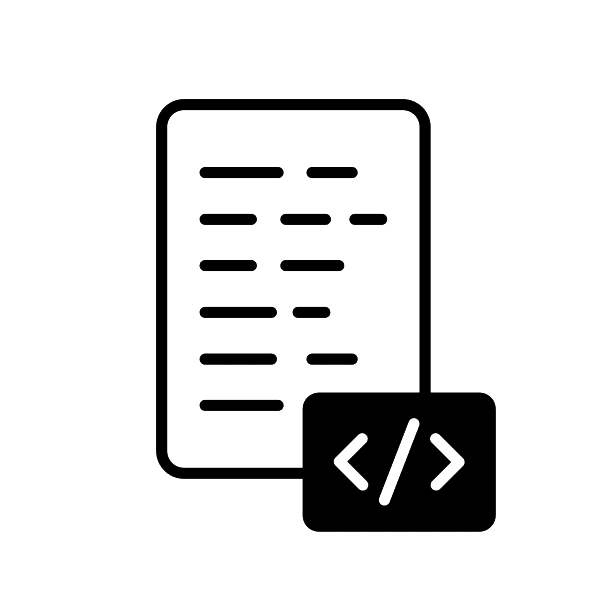Hone your writing skills with the assistance of a professional at TigerCampus Japan.

Our teachers and tutors graduated from top universities








Overview

Customized curriculum
We'll find a tutor who can make sure you're prepared for the A-Level Maths exam with customisable lessons catered to fit your needs.

Flexible
Take lessons only when you need them—as little or as many as necessary until you feel confident.

Private lesson
No need to accommodate other students. Learning is customised your perfect pace and difficulty so you are always improving.
Description
What you will learn
- Research skills
- How to organize your paper
- Formatting and citations
- Improve language, tone, and sentence variances
- Critical thinking skills
Thesis Writing Tips
Here are some thesis writing tips to help you navigate the process more effectively:
Start Early: Begin your thesis as early as possible. Procrastination can lead to unnecessary stress and rushed work.
Choose a Manageable Topic: Select a topic that is specific and manageable. Avoid overly broad subjects that may lead to information overload.
Create a Detailed Outline: Develop a comprehensive outline that organizes your research, main points, and arguments. This will serve as a roadmap for your thesis.
Set Realistic Goals: Break down your thesis into smaller, achievable goals. Set weekly or monthly milestones to track your progress.
Research Thoroughly: Conduct thorough research using reliable sources. Take detailed notes and organize your references from the beginning.
Cite Properly: Use a consistent citation style (e.g., APA, MLA, Chicago) and ensure accurate and consistent referencing throughout your thesis.
Write Regularly: Establish a writing routine. Write regularly, even if it’s just a few hundred words per day. Consistency is key.
Edit and Revise: Don’t expect your first draft to be perfect. Edit and revise your work, focusing on clarity, coherence, and organization.
Seek Feedback: Share your work with peers, advisors, or mentors to get constructive feedback. Consider joining a writing group for additional support.
Manage Your Time: Manage your time effectively to avoid last-minute rushes. Use time management techniques, like the Pomodoro Technique, to stay focused.
Stay Organized: Keep all your research materials, notes, and drafts organized. Consider using digital tools or software to manage your references and citations.
Take Breaks: Avoid burnout by taking regular breaks. Stepping away from your work can often lead to fresh insights.
Stay Mindful of Your Audience: Remember your target audience, which may include your advisor, committee members, and other scholars in your field. Write with clarity and avoid jargon when possible.
Proofread Thoroughly: Proofreading is essential. Look for grammatical errors, typos, and formatting issues. Consider using proofreading tools or asking someone else to review your work.
Back Up Your Work: Regularly back up your thesis to prevent data loss. Use cloud storage or external drives for redundancy.
Stay Persistent: Thesis writing can be challenging, but perseverance is key. Stay committed to your goals and keep working steadily.
Remember that thesis writing is a process that takes time and effort. Be patient with yourself, and don’t hesitate to seek help or guidance from your advisor or academic support services at your institution if needed.
Student FAQs About Thesis Writing
The research question or thesis statement is the cornerstone of your thesis. It serves several critical functions:
Guiding Your Research: It defines the central problem or inquiry you intend to address in your thesis. It acts as a compass, ensuring that your research stays focused and purposeful.
Providing Direction: Your research question or thesis statement provides clear direction for your work. It outlines the scope of your study and helps you set boundaries for what you will and won’t investigate.
Ensuring Relevance: It ensures that your research is relevant and meaningful. It should reflect an issue or gap in knowledge that has importance within your field or discipline.
The methodology section is where you describe how you conducted your research. It should be structured in a way that allows others to understand and replicate your study if needed. Here’s how to do it effectively:
- Research Design: Explain the overall design of your research, whether it’s experimental, survey-based, qualitative, or quantitative.
- Data Collection Methods: Describe in detail how you collected data, including the instruments, surveys, interviews, or experiments used.
- Sample Selection: Explain how you selected your sample or participants, and justify why this sample is representative of your research population.
- Data Analysis: Detail the methods you employed to analyze the data, including any statistical or qualitative techniques.
- Ethical Considerations: Discuss any ethical considerations, such as informed consent and confidentiality, that you adhered to during the research.
The literature review is a critical component of your thesis, and its role extends beyond summarizing existing research. Here’s how to approach it effectively:
Contextualizing Your Research: The literature review provides context for your study. It shows where your research fits into the larger academic conversation by summarizing relevant studies, theories, and debates.
Identifying Gaps: As you review the literature, pay attention to gaps or unanswered questions in the existing research. These gaps can become the rationale for your study.
Analyzing and Synthesizing: Don’t just summarize each source; analyze and synthesize them. Identify common themes, differences, and trends among the studies, and critically evaluate their methodologies and findings.
Organizing Logically: Organize your literature review logically, grouping studies by theme or methodology. This makes it easier for readers to follow your discussion.
Maintaining a coherent and logical flow in your thesis is crucial for reader comprehension. Consider these strategies:
Transitions: Use clear and concise transitions between sections and paragraphs. Signal the relationship between ideas with phrases like “in addition,” “however,” or “on the other hand.”
Progressive Argumentation: Ensure that each section of your thesis builds upon the previous one. Your arguments and findings should logically progress throughout the document.
Headings and Subheadings: Use headings and subheadings to provide a clear structure. This helps readers navigate your thesis and understand its organization.
Consistent Style: Maintain a consistent writing style and formatting throughout your thesis. This includes consistency in tone, verb tense, and citation style.
Defending your thesis in an oral examination can be nerve-wracking, but preparation is key:
Revisit Your Thesis: Thoroughly review your thesis before the defense. Be prepared to summarize your research, main findings, and contributions.
Anticipate Questions: Think about the questions your committee may ask and prepare concise, well-thought-out answers. Consider practicing with a friend or colleague.
Rehearse Your Presentation: Practice your presentation multiple times to ensure you can cover the key points within the allotted time. Be clear, concise, and confident.
Respond Thoughtfully: During the defense, listen carefully to committee members’ questions and comments before responding. If you don’t know the answer to a question, it’s acceptable to acknowledge that and offer to follow up with more information.
Stay Composed: Maintain composure and professionalism throughout the defense. Remember that the committee’s goal is to evaluate your work and provide constructive feedback.
Pricing
No hidden fees. Cancel any time.
Get a free trial to find your perfect tutor before you commit.
Online Tutoring
-
Personalized lesson plans
-
Paid Zoom account
-
Lesson reports after every lesson
-
SMS & email appointment reminders
-
Dedicated customer support
-
No monthly commitment
-
24 hour free cancellation
Or call us at +81-120-963-638
Home Tutoring
-
Personalized lesson plans
-
Lesson reports after every lesson
-
SMS & email appointment reminders
-
Dedicated customer support
-
No monthly commitment
-
24 hour free cancellation
-
Transportation included
Or call us at +81-120-963-638
How it works
1
Request a tutor
Let us know your goals and age range. We'll figure out a plan to help get you there.
2
Match with a tutor
We'll recommend you a tutor based on your needs and goals, or you can request a specific tutor.
3
Start a free trial
Experience a free trial lesson with your new tutor and see if your learning style matches.
4
Keep it up!
If everything went well, sign up to keep going! You can choose the pacing of the lessons
Need more info?
Let's talk.
Leave your phone number, and we’ll call you back to discuss how we can help you.



